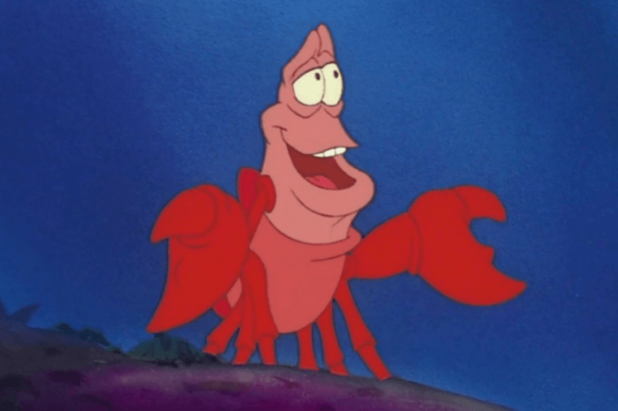
Previously: Disney’s Latest Niggerfest May be One of the Worst Flops in Cinema History
Legal scholar and conservative commentator Jonathan Turley has a piece up at The Hill about Disney’s latest SEC filing, wherein they admit that they are letting down shareholders by purposefully refusing to produce media that their consumer base enjoys, and instead attempting to force a social agenda on them.
For some reason, Turley starts out talking about Adam Smith and the invisible hand, even though that is of very minimal relevance here.
We’re just interested in the data.
In a new corporate disclosure, Disney acknowledges that its controversial political and social agenda is costing the company and shareholders.
In its annual SEC report, Disney acknowledges that “we face risks relating to misalignment with public and consumer tastes and preferences for entertainment, travel and consumer products.” In an implied nod to Smith, the company observes that “the success of our businesses depends on our ability to consistently create compelling content,” and that “Generally, our revenues and profitability are adversely impacted when our entertainment offerings and products, as well as our methods to make our offerings and products available to consumers, do not achieve sufficient consumer acceptance. Further, consumers’ perceptions of our position on matters of public interest, including our efforts to achieve certain of our environmental and social goals, often differ widely and present risks to our reputation and brands.”
I don’t even know what “environmental” goals they’re talking about. Probably, people don’t really care that much about that.
But the social goals, in particular trying to force children to become gay, definitely hurt the brand. Replacing all of the characters with black people didn’t go over too well either.
Conservatives keep saying “it’s not about race! We don’t care about race! We just don’t want woke!” Conservatives say this because they are pussies and spineless wimps, but on some level it’s maybe sort of true. No one cared that Sebastian in The Little Mermaid was black.
Further, if they want to make new characters that are black, because they want to market their products to black people, no one has an issue with that.
The issue is, when you’re replacing white characters with black people, that is not a neutral act of “inclusiveness,” it is a direct attack on white people, telling them “we’re replacing you.” Everyone understands that.
Basically, everything that Disney has produced in the last 5 or so years has been an attack on their own audience. There have maybe been some exceptions, like the first season of The Mandalorian, but the following seasons of The Mandalorian were attacks.
Disney and other companies have previously ignored consumer backlash over corporate campaigns such as Disney’s opposition to Florida’s Parental Rights in Education law. Corporate officials once avoided political controversies and focused on selling their products and services rather than viewpoints.
Disney has reportedly lost a billion dollars just on four of its recent “woke” movie flops, productions denounced by critics as pushing political agendas or storylines. Yet until now, the company has continued to roll out underperforming movies as revenue has dropped. What’s more, Disney stars persist in bad-mouthing its fabled storylines and undermining its new productions. The company admits that it has suffered a continued slide in “impressions” (that is, viewership) by 14 percent.
It has to be more than 14%.
Previously MCU films are among the most profitable films in history. The Marvels, which is race and vagina propaganda, is going to lose over $100,000,000. The last four kids’ cartoons, all of them “woke,” have lost money.
[Citation needed]For shareholders, it may seem counterintuitive that corporate executives would trade off profits for political or social agendas. However, it does serve as a rationale for individual corporate executives who are professionally advanced when they champion such causes.
…
In fairness to Disney, there is an expressive element to its products. Movies are artistic creations that emphasize certain motivations and values. At one time, those values included some that are now viewed as offensive, including racist tropes.
The question is the balance and degree of the political and social agenda. Disney’s products are now viewed by many conservatives as empty virtue signaling and endless attempts to indoctrinate children. Moreover, when the company publicly declares its opposition to a popular parental rights bill in Florida, it is moving away from a commercial to a political focus.
That is the problem with the invisible hand. You can bring movies to the public, but you cannot make them sell. Once an unassailable and uniting brand, Disney brand is now negatively associated with activism by a significant number of consumers. The company is now even reporting a decline in licensing revenue from products associated with Star Wars, Frozen, Toy Story and Mickey and Friends — iconic and once-unassailable corporate images.
The question is how long Disney (or its shareholders) can tolerate falling revenues tied to its “misalignment with the public.” It is a massive corporation and it can lose billions before facing any truly dire decisions. Yet even Disney’s CEO, Bob Iger, now appears to be seeking to “quiet things down” after years of culture wars.
Iger has come to accept that a company does indeed have to sell products to survive. As Smith wrote, “It is not from the benevolence of the Butcher, the Brewer or the Baker that we expect our dinner, but from their regard to their own interest.”
So Happy 300th birthday, Adam. It is a bit belated, but so was Disney’s recognition of your economic principles.
Okay, well.
I was hoping for a bit more from Jonathan Turley here. I didn’t really need a lecture on Adam Smith’s Hidden Hand. I would have been much happier if I’d gotten an explanation of the mechanics of how a public company can pursue a policy of purposefully losing money and not violate fiduciary duties to shareholders. That’s been my main question regarding the collapse of Disney’s profitability, and I’ve yet to find any kind of explanation.
The fact that Disney is now admitting that they are making decisions that they know are going to cost the company money seems to imply, to my non-expert brain, that they are breaking the law. Obviously, companies can make mistakes and lose money, but if you are a publicly traded company and you are admitting that you are losing money on purpose in order to push an agenda on your customers, I think this is definitely illegal.
For the record, although we all tend to blame BlackRock for this, BlackRock only owns 6% of Disney. Maybe they are okay with the company losing money in a quest to turn kids gay, but what about the people who own the other 94% of the shares? How are they not outraged that Disney’s stock value is half of what it was in June 2021, when they really started going hard on this “we’re turning your kids gay” agenda?
As I explained in my last article about Disney, the only non-woke film they have on their schedule is Deadpool 3. It’s also the only film the MCU is releasing in 2024. I recently watched Deadpool 2, and it was a very normal movie. Of course, it was produced by Fox, not Disney, so it’s possible Disney is going to turn the third installment of the franchise, which they now own, into some ultra-gay thing.
The fact that this is the only one being released next year, however, means that the rest of the films on the slate have not started filming yet. You would think that after this SEC filing, Disney would be forced to reevaluate these upcoming films, and perhaps cancel or completely change them.
No one is requesting a black Captain America. This is a film being made purely for political reasons.
So, cancel that.
Blade is a black character, and that can be the “Blackie” film of the era. There’s no reason it has to be George Floyd propaganda. It could just be a movie with a black character.
If Disney chooses to keep making these films no one wants to see, along the lines of “The Marvels” and “Wish” – two major flops this month – they should be sued or something.
 Daily Stormer The Most Censored Publication in History
Daily Stormer The Most Censored Publication in History




